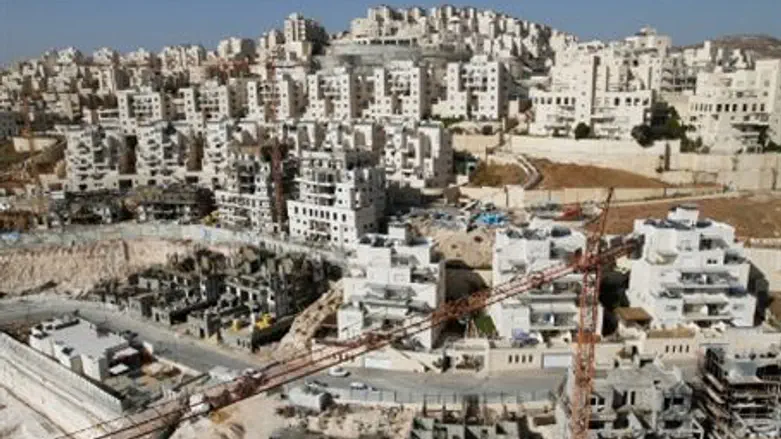
Prime Minister Binyamin Netanyahu has rejected the Palestinian Authority (PA) contention, that recent decisions on construction in Jerusalem, Judea and Samaria contravene agreements reached at the outset of negotiations between Israel and the PA, three months ago.
He said that the Palestinians knew full well when the talks began that Israel acepts no limitations on construction beyond the “Green Line,” which demarcates Israel's 1949 armistice borders.
Netanyahu spoke at the cabinet session Sunday but his statement was not reported until around midnight, following the angry PA reactions to the decisions to build about 1,700 more housing units in Jerusalem, Judea and Samaria.
PA Chairman Mahmoud Abbas's spokesman, Nabil Abu Rudeineh, called the plans “destructive to the peace process,” and Abbas's diplomacy advisor, Nimr Hamed, said the PA would demand clarifications from US Secretary of State John Kerry.
The Ministry of Housing and the Israel Lands Authority announced Sunday that about 700 homes will be built in Jerusalem, 387 of them in the Ramat Shlomo neighborhood, and 311 in Gilo. Both neighborhoods are part of the areas liberated by Israel in the Six Day War.
In addition to the new construction, land for 380 apartments that had been previously not been bid on by contractors will be offered again. Those homes will be built in the Gilo and Har Homa (Homat Shmuel) neighborhoods.
Justice Minister Tzipi Livni confirmed Netanyahu's contention on Monday, and told Voice of Israel public radio that “to say that Israel has abrogated a commitment would be an untrue statement.”
"On the eve of negotiations,“ she said, “each of the sides made decisions, and there are things that each side has to swallow, that are unpleasant."
Livni said that the government had to choose between releasing terrorist prisoners and freezing construction in the areas contested by the PA, and that this was not a simple choice because the release of terrorists “was very difficult for all of us.” She hinted that the presence of the religious Zionist Bayit Yehudi party in the Coalition made it impossible to freeze construction, and so the government opted for releasing terrorists, which is “very difficult for all of us.”
The construction in Jerusalem, Judea and Samaria “bothers the Palestinians and hurts our status in the world,” she said, “but there is no violation of our commitments in it.”
Livni explained that the construction of communities in Judea and Samaria is something that the world “doesn't understand” and that it is perceived as “the colonialism of long ago.”